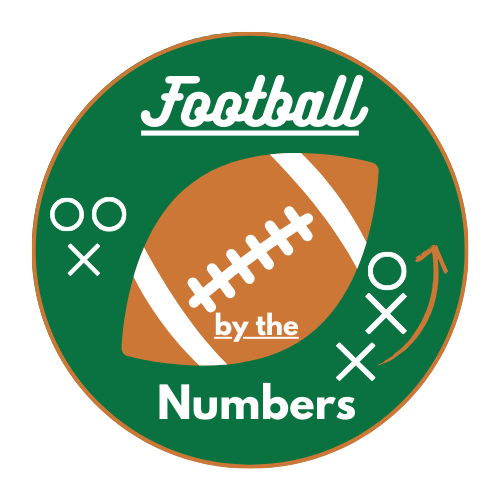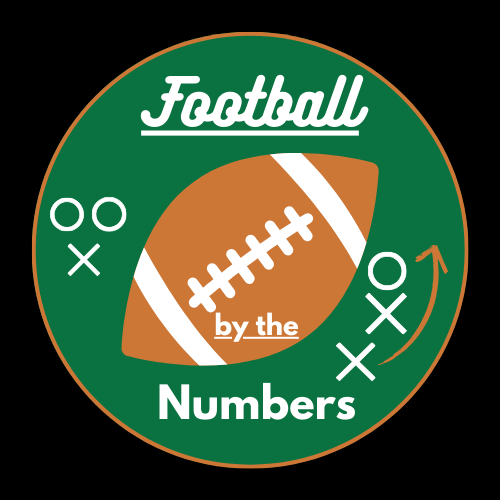The Bears lost a heartbreaker in Detroit this week, falling 31-26 in the Motor City. Losing a game in which so much was going in the team’s favor has to be demoralizing for the locker room. Chicago dominated the game, possessing the ball for 40 minutes compared to just under 20 minutes for Detroit. The Bears won the turnover battle 4-1. Losing a game under these circumstances is unheard of. I thought that offensive coordinator Luke Getsy called a great game on offense. He enabled the returning Justin Fields to thrive and put together a nice performance in his first game back from injury. The issue lied in head coach Matt Eberflus’ managing of the defense in key situations.
Turnovers Galore
Starting off with the positives, the defense did a fantastic job of creating takeaways. Rookie cornerback Tyrique Stevenson snagged the first interception of his career on the first Lions drive of the game. The Bears ran a simulated pressure in which linebacker TJ Edwards screamed into right tackle Penei Sewell, while edge rusher DeMarcus Walker bailed into coverage. This creativity caused confusion within the Lions offensive line and forced a quick throw out of quarterback Jared Goff, and ultimately the interception. This play was integral in setting the tone for the game and opening the turnover floodgates.
The next time Goff touched the ball, it was more of the same. This time, it was LB TJ Edwards with the fantastic play. He was able to come up with an interception, giving the offense great field position.
Stevenson made another huge play in the third quarter, forcing a fumble on a kickoff. This gave the offense unbelievable field position, which it was able to capitalize on with a long DJ Moore touchdown.
LB Tremaine Edmunds also got in on the action in the second half, marking Goff’s third pick. This set up a Cairo Santos field goal to put the Bears up by multiple possessions. It is instances like this and Tyrique Stevenson’s forced fumble that this Bears team has been severely lacking in 2023. Good defense turns into good offense.
Getsy and Fields Finally on The Same Page
OC Luke Getsy has fallen under a great amount of scrutiny this season, and for good reason. He has struggled with being able to correctly utilize the unique talents that Justin Fields possesses. However, he called a fantastic game this week. First, Getsy displayed the utmost confidence in Justin Fields’ arm to start off the game. After starting off the drive with a designed roll-out, Getsy called two more pass plays in first down situations. That may get overlooked, but I believe it speaks volumes. In previous weeks (even with Fields at QB), first down runs were almost a guarantee.
Most importantly, Fields’ legs were heavily implemented into the gameplan. It was clear from the start that Fields was going to be running frequently, which is a great strategy against Detroit’s man-heavy defensive tendencies. The second play of the game was a designed QB run, followed up by a read-option keep. I charted seven read-options throughout the entirety of the game, five of which Fields kept.
Justin Fields led the Bears in both carries and rushing yards, gaining 104 on 18 rushes. Allowing Justin to be himself and be a playmaker was great for the offense. Utilizing his rushing ability also seemed to calm him. Fields looked comfortable in the pocket and did a great job of keeping his eyes downfield. While he scrambled several times, he also was able to complete some passes after evading the initial pass rush.
With Fields’ return, wide receiver DJ Moore also came back to life, recording 96 yards and a touchdown on seven catches.
How Did the Trenches Fare?
Offensive Line
My reviews of the offensive line’s performance are mixed. In terms of pass blocking, I love how they played. The unit only allowed two sacks, though one of them was Aiden Hutchinson’s strip sack on the last play of the game. The unit did a great job of giving the quarterback time to work.
Specifically, I thought that rookie tackle Darnell Wright did a fantastic job of containing star edge rusher Aiden Hutchinson. He is a game-wrecker. While he did ultimately wreck the game, the rookie had literally stopped him on every other snap. He has been put through the ringer this season, and added another impressive performance to his resume today.
While the line was great in pass protection, there is a different story when it comes to run blocking. Detroit is one of the best against the run this year, and it showed why. While Justin Fields was efficient on the ground, the Bears couldn’t get anything going in the traditional run game. RB Khalil Herbert gained only 35 yards on 18 carries. He averaged 2.2 yards per carry. The Lions recorded eight tackles for loss on run plays. Rookie safety Brian Branch recorded three of them, which is more than the Bears defense combined. The offensive line needed to do a better job of clearing up running lanes and giving Herbert a chance to evade the backfield.
Defensive Line
The defensive line was fine. It recorded two sacks, one of them being Montez Sweat’s first as a Bear. There were a few times where Goff was made uncomfortable, but that certainly wasn’t a major factor in the game. I will point out that one of the interceptions was made possible by a Gervon Dexter Jr. deflection.
Laid-Back Defense Costs Bears the Game
At a time where the media should be applauding the defenses’ takeaways, instead it is lauding its ‘late-game collapse’. The Bears allowed two touchdowns in the final four minutes. However, I don’t pit it all on the players. No, Tremaine Edmunds can’t be missing crucial tackles in key moments, and the defense can’t be allowing such a high percentage of third down conversions. Still, I believe that Matt Eberflus’ defensive play-calling was the main culprit behind the collapse.
Before I get to the two late touchdowns, I must start with the last defensive drive of the first half. After only scoring 7 points all half, the Lions offense headed onto the field with 1:47 remaining until half time. All of a sudden, they could move the ball easily. Even though running his normal defense had worked all game long, Matt Eberflus decided to keep the whole defense back to avoid deep pass completions. Detroit welcomed the adjustment. The first three plays were a 10 yard pass, a 13 yard pass, and a 9 yard pass. After one incompletion, Goff followed up with a 12 yard pass, a 8 yard pass, and a 14 yard pass. By then, Detroit found themselves on the 9 yard line. Jahymr Gibbs was able to punch it in and double the Lions first half point total. Someone let Eberflus know that purposefully allowing seven “short” passes is the same as allowing one really long one. The same thing happened late in the fourth quarter.
After being held scoreless for the entirety of the second half, the Lions got the ball with 4:15 left, down by 12. Knowing that Detroit needed two touchdowns to win, Eberflus decided to switch back to his patented end-of-half defense. He kept his defense back, in order to force the Lions to throw it short. After quick gains of 16 and 13 yards and a few easy runs, Goff found Jameson Williams for a touchdown. After the offense was one Tyler Scott catch away from sealing the game, the defense was tasked with stopping the Lions one last time. Alas, Eberflus did his thing. Playing so conservatively on defense also makes it very easy to run the ball, as there are less players in the box. In Detroit’s two-minute long 73-yard game-winning touchdown drive, they didn’t complete one play over 13 yards. Eberflus did what he was trying to do; took away the big play. It cost the Bears the game. The Lions only scored 7 points in normal defensive situations. 24 of their points came within the final 3 minutes of a half. This is all on Matt Eberflus.

